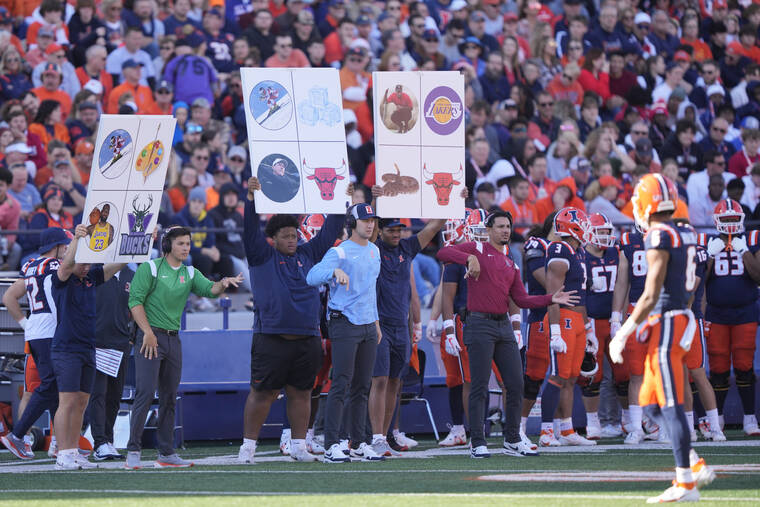Coach-to-player technology could have prevented sign-stealing scandal hitting college football
The frustrating part about watching the Michigan sign-stealing scandal play out for Todd Berry, the executive director of the American Football Coaches Association, is that it all could have been avoided.
For the past two years, Berry and his organization, which includes just about about every major college football coach, have backed with full support the use of in-game technology that would allow coaches to communicate with players on the field, just like they do in the NFL.
ADVERTISING
No more signs would be necessary.
“Because sign stealing is easy,” said Berry, whose 40-year coaching career included being head coach at Army and Louisiana-Monroe. “It’s easier, obviously, when you take certain steps.”
The NCAA football playing rules committee has been slow to embrace the use of coach-to-player communication technology because of concerns that it could provide a competitive advantage to schools based on budgets. But a plan is in place to give it a test run during this bowl season.
The NCAA has no rules against sign-stealing, but it does ban in-person, in-season advanced scouting of opponents and the use of electronic equipment to record opponents’ signals.
That is what No. 2 Michigan is accused of doing for at least the last two seasons. A low-level staffer is at the center of an NCAA investigation that was triggered by evidence gathered and provided to the association’s enforcement staff by an outside firm.
Suspended analyst Connor Stalions appears to have been buying tickets to the games of Michigan opponents and possible College Football Playoff foes, and sending people to them to take cellphone videos of signals being used to call in offensive and defensive plays from the sideline.
Michigan coach Jim Harbaugh has denied any knowledge or involvement of the alleged scheme. Since announcing the suspension of Stalions last Friday, Michigan has declined to comment on the ongoing investigation. The NCAA has also declined to comment.
The scandal has coaches around the country echoing Berry’s ‘I told you so.’
“You can’t steal signs and do any of this stuff if you have a helmet communicator,” Alabama coach Nick Saban said.
Nebraska coach Matt Rhule, who spent much of his career in the NFL, said: “We could get rid of all the stupid signs on the sidelines and we could get (rid of) pictures of rock stars and we could just play football the way it was meant to be. You go to a high school game, there’s technology on the sideline. You go to an NFL game, there’s technology on the sideline. You go to college game, there’s nothing.”


